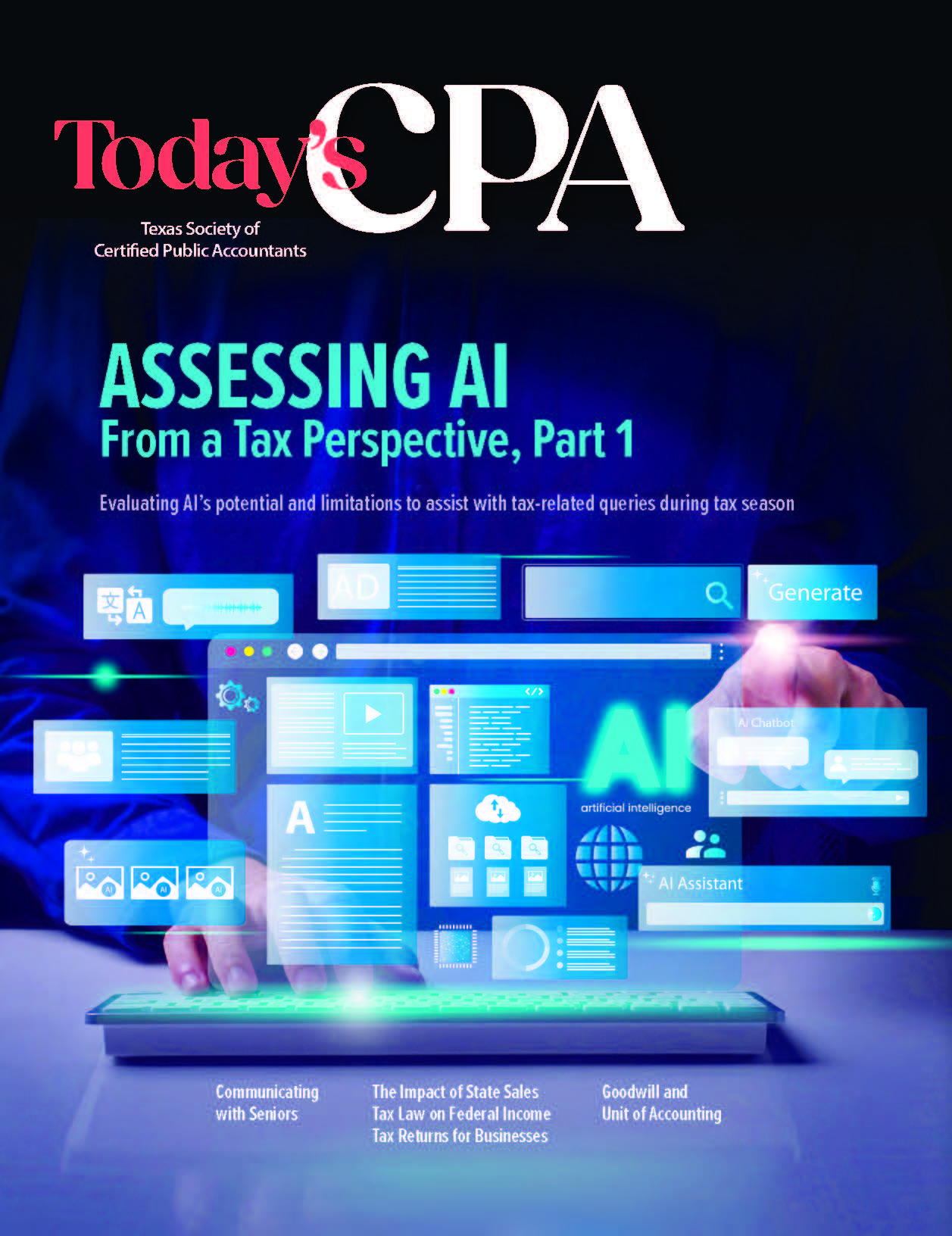January 15, 2025
FASB’s New ASU 2024-03: Another Step Toward Greater Transparency in Financial Reporting
By Shilpa Boggram Sathyamurthy, CPA, CA
The Financial Accounting Standards Board (FASB) issued Accounting Standards Update (ASU) 2024-03 on November 4, 2024 aimed at further improving financial reporting by providing greater transparency into certain expenses. This update responds to investor feedback gathered during FASB’s 2021 agenda consultation and subsequent outreach efforts. Investors expressed a strong need for more granular information about a company’s expenses to better assess its performance, cash flow prospects and comparative standing within its industry.
Key Provisions of the New ASU
The new ASU requires public companies to provide more detailed disclosures in the notes to their financial statements, both for interim and annual reporting periods. These disclosures are designed to provide investors with clearer insight into the expenses of a business. Specifically, companies must disclose:
1. Breakdown of Certain Expenses – Purchases of inventory; employee compensation; depreciation; intangible asset amortization; depreciation, depletion and amortization for oil- and gas-producing activities - in the case of oil and gas companies, they will be required to disclose depletion-related expenses separately, alongside depreciation and amortization.
2. Qualitative Description of Non-Quantitative Disclosures – Companies will need to provide qualitative descriptions for amounts in relevant expense categories that aren’t separately quantified, offering investors more context for those figures.
3. Total amount of selling expenses – For annual reporting periods, companies will also need to provide their definition of selling expenses to clarify how these costs are categorized.
This ASU was issued to improve financial reporting transparency by requiring public companies to disclose more detailed expense information in the notes to financial statements – something that is not currently mandated under Generally Accepted Accounting Principles (GAAP). Under existing rules, the income statement does not require the disaggregation of certain expenses or the presentation of specific expense captions, except for certain items that are industry-specific or triggered by specific events (e.g., goodwill impairment).
Currently, while some specific expenses may need to be disclosed in the notes, they are not always presented in a tabular format alongside other disaggregated expense information. The new ASU addresses this gap by requiring companies to include more granular expense data within the notes to the financial statements, presented in a consistent tabular format.
Why This Update is Significant
The ASU was driven by direct feedback from investors, who indicated that better expense disclosures would enhance their ability to assess a company’s financial health, cash flow forecasts and overall performance. By breaking down key expenses like compensation and depreciation, investors will have a clearer understanding of how costs are impacting profitability and how those costs might change in the future.
FASB Chair Richard R. Jones emphasized that this update reflects the importance of transparency and detailed financial reporting. The goal is to provide investors with more reliable information for making informed investment decisions.
Effective Date and Early Adoption
The amendments introduced by this ASU will be effective for annual reporting periods beginning after December 15, 2026, and for interim reporting periods beginning after December 15, 2027. However, early adoption of the new rules is permitted.
Practical Considerations
Companies will need to update their internal accounting systems to ensure that these detailed disclosures can be made accurately and consistently. The requirement to separately disclose specific expenses like employee compensation and inventory purchases may involve changes to current reporting practices and may require additional data collection, particularly for businesses with complex cost structures.

In summary, this ASU aligns with FASB’s continued effort to improve transparency in financial reporting, especially around expense disclosures that are crucial for investors. By requiring companies to break down certain key expenses, this update is expected to enhance the ability of financial statement users to better understand a company’s financial position and prospects.
About the Author: Shilpa Boggram Sathyamurthy, CPA, CA, is a Senior Manager, Accounting, at DoorDash. Contact her at shilpa.boggram@gmail.com.
Thanks to the Sponsors of Today's CPA Magazine
This content was made possible by the sponsors of this issue of Today's CPA Magazine:






















